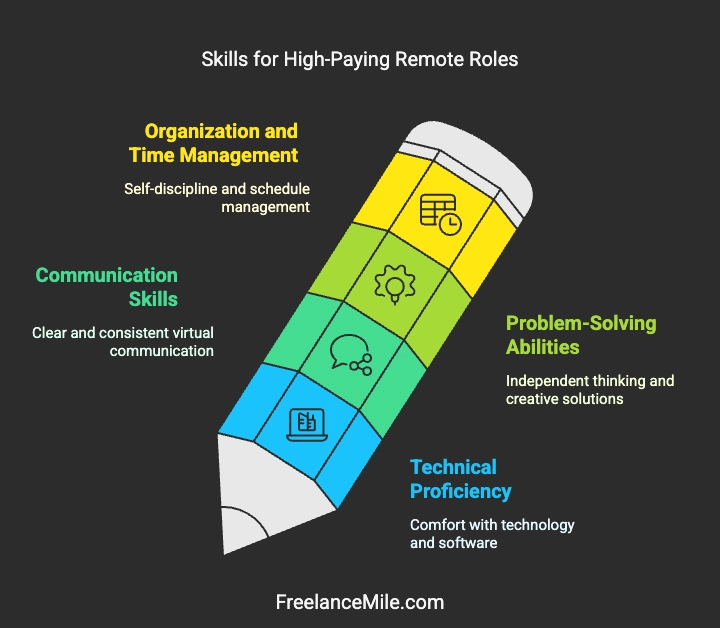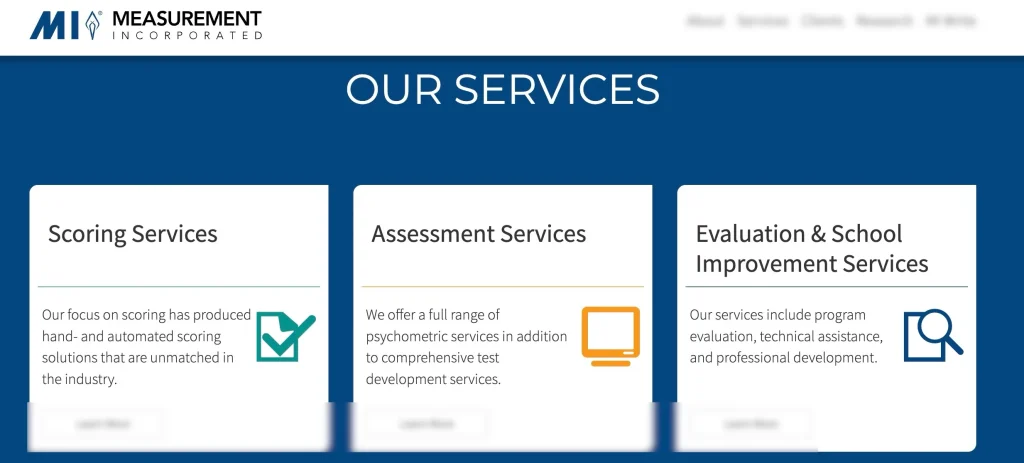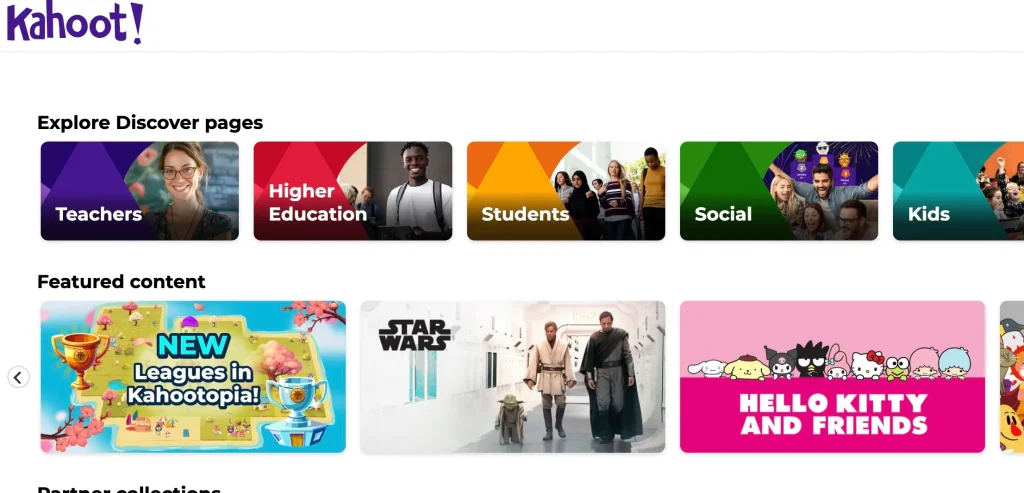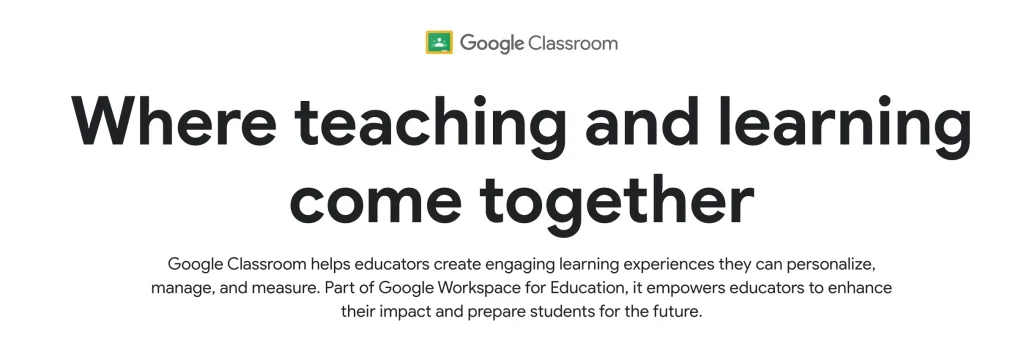Ever found yourself grading papers at midnight, dreaming of a job where your commute is just a stroll from the bedroom to the coffee maker?
As a digital marketer with over a decade in the trenches, I’ve seen more than a few teachers-friends, family, and clients-wonder if there’s life beyond the classroom.
Spoiler alert: there absolutely is! And the best part? There are remote jobs for educators that pay well, respect your expertise, and let you finally say goodbye to cafeteria duty.
So, if you’re ready to swap the whiteboard for a laptop and want to know which gigs can actually pay the bills (and then some), grab your favorite mug.
Let’s check them out!
Why Remote Jobs for Educators Are Booming
Before we get into the list, let’s talk about why remote jobs for educators are having a major moment.
Teachers have skills-seriously, you’re organizational ninjas, communication pros, and masters of patience. The world outside the classroom is finally catching on! Whether you want a side hustle or a whole new career, there’s a remote job with your name on it.
10 Lucrative Remote Jobs for Educators

Here’s a quick overview of what’s coming up. I’ll break down each job, what it pays, and why it’s perfect for teachers ready to work from anywhere.
- Online Tutor
- Curriculum Designer
- Instructional Designer
- Education Consultant
- Data Scientist (#5 Pays $90K+!)
- Test Scorer
- Education Writer
- Virtual Coach
- Corporate Trainer
- Online Course Creator
Ready for the details? Let’s go!
1. Online Tutor
Overview:
Love teaching but want to ditch the classroom chaos? Online tutoring lets you work one-on-one with students around the globe, focusing on subjects you’re passionate about.
Details:
Platforms like Preply, Magic Ears, and English from A to Z are booming. You can teach English, math, science, or even test prep.
The pay? Anywhere from $18 to $70 per hour, depending on your subject and experience. Flexible hours, global students, and no more hallway duty-what’s not to love?
2. Curriculum Designer
Overview:
If you geek out over lesson plans and always have Pinterest boards for classroom ideas, curriculum design might be your jam.
Details:
Curriculum designers create educational materials for schools, companies, or online platforms. You’ll use your teaching know-how to make learning fun and effective.
Salaries range from $50,000 to $90,000+ a year, especially if you specialize in high demand subjects or digital content.
3. Instructional Designer
Overview:
Think of this as curriculum design’s tech-savvy cousin. Instructional designers build online courses, training modules, and e-learning experiences.
Details:
You’ll work with educators, businesses, or even universities to turn complex topics into engaging digital lessons. Paychecks can hit $80,000 or more, especially if you have experience with tools like Articulate Storyline or Adobe Captivate. Bonus: You get to flex those creative muscles!
4. Education Consultant
Overview:
Want to help schools, districts, or ed-tech companies do things better? Education consulting is all about sharing your expertise to improve learning outcomes.
Details:
Consultants might advise on curriculum, teacher training, or school policy. You can work autonomously or with consulting firms. The average salary is around $60,000 to $100,000 a year, depending on your niche and client base. It’s like being the wise mentor, minus the gray beard.
5. Data Scientist (#5 Pays $90K+!)
Overview:
Wait, data science? For educators? Absolutely! If you love numbers, patterns, and solving puzzles, this is a goldmine.
Details:
Data scientists analyze educational data to improve teaching methods, student outcomes, or even ed-tech products. The best part?
Salaries start around $72,000 and can soar to $141,000 per year. Yes, you read that right-remote jobs for educators can pay six figures! You’ll need some extra training in data analysis tools, but if you’re a math or science teacher, you’re halfway there.
6. Test Scorer
Overview:
Remember all those standardized tests? Someone has to grade them-and it could be you!
Details:
Test scorers work remotely, grading essays, short answers, or even math problems for testing companies. The pay averages around $36,000 a year, but it’s flexible and can be a great side hustle. Plus, you get to judge without being judged. Win-win!
7. Education Writer
Overview:
If you love explaining things and have a knack for words, education writing is a fantastic fit.
Details:
You might write textbooks, online articles, or curriculum guides. Some gigs pay per project, while others offer steady salaries-think $44,000 to $70,000 a year, depending on your experience and the complexity of the material. It’s perfect for teachers who secretly enjoy grading essays (no shame!).
8. Virtual Coach
Overview:
Coaching isn’t just for sports! Virtual coaches help students, teachers, or even adults develop skills and confidence.
Details:
You could coach teachers on classroom management, help students with study skills, or guide professionals through career changes. Pay varies widely, but experienced coaches can earn $50,000 to $100,000+ per year, especially if you build a strong client base. It’s all about helping others win-without the whistle.
9. Corporate Trainer
Overview:
Big companies need people to train their staff, and who knows how to teach better than, well, teachers?
Details:
Corporate trainers develop and deliver training sessions on everything from communication to software skills. Salaries range from $55,000 to $120,000, depending on your industry and experience. You get to use your teaching chops in a whole new world-plus, no parent-teacher conferences!
10. Online Course Creator
Overview:
Got a passion or expertise? Package it into an online course and share it with the world.
Details:
Platforms like Udemy, Teachable, and Coursera let you create courses on anything from algebra to art history. Income varies-some creators make a few hundred bucks a month, while others rake in six figures. It’s entrepreneurial, creative, and totally remote. Just imagine: your lesson plans, but making money while you sleep!
How to Get Started: Tips from a Digital Marketer
I’ve helped plenty of educators make the leap to remote work, and here’s what I always recommend:
- Update your resume: Highlight your teaching skills-communication, leadership, tech-savvy-because they’re gold in the remote world.
- Start small: Try a side hustle like tutoring or test scoring before going all-in.
- Network: Join online communities for educators making career changes. You’ll find support, advice, and maybe even your next gig.
- Keep learning: If a job needs extra skills (like data science), there are tons of affordable online courses to help you level up.
And remember, remote jobs for educators aren’t just a trend-they’re the future!
Most Common Challenges Educators Face When Transitioning to Remote Teaching Roles – And How to Overcome Them
Making the jump from a traditional classroom to remote teaching? It’s exciting but can feel like a wild rollercoaster ride!
I get it-many educators face similar bumps along the way. The good news? Every challenge has a way forward.
Let’s break down the most common hurdles & how you can tackle them like a pro.
1. Loss of Human Connection and Classroom Presence
The Challenge:
Missing those face-to-face moments with students? Without in-person cues, it’s harder to read the room, spark spontaneous discussions, or simply share a smile.
How to Overcome It:
- Use video calls as much as possible to see your students’ faces.
- Incorporate icebreakers and casual check-ins to build rapport.
- Encourage students to turn on their cameras (when comfortable) and use chat or reaction features to keep the interaction lively.
- Try small group breakout rooms to foster peer connection.
Remember, building connection online takes intentional effort, but it’s totally doable!
2. Student Engagement and Accountability
The Challenge:
Let’s be honest-keeping students focused through a screen is tough. Distractions at home can pull them away, and some may struggle with self-motivation.
How to Overcome It:
- Break lessons into bite-sized chunks to keep attention sharp.
- Use interactive tools like polls, quizzes, and gamified platforms (think Kahoot or Quizlet).
- Set clear expectations and routines for participation.
- Provide regular, personalized feedback to keep students accountable and motivated.
- Consider involving parents or guardians to support younger learners.
Engagement is a moving target, but mixing things up keeps students curious and involved.
3. Technology Barriers and Digital Skills
The Challenge:
Not everyone grew up with Zoom or Google Classroom, right? Learning new tech tools on the fly can be overwhelming, plus tech glitches happen.
How to Overcome It:
- Dedicate time to learn and practice with the platforms before class.
- Take advantage of free tutorials and webinars-there’s a ton of great content online.
- Create simple “how-to” guides or videos for your students.
- Have a backup plan in case tech fails (like phone calls or offline assignments).
- Don’t hesitate to ask your school or district for tech support or training.
Remember, nobody’s perfect with tech at first-practice makes progress!
4. Pedagogical Adaptation
The Challenge:
That tried-and-true lesson plan might flop online. Remote teaching demands new strategies to keep learning effective and fun.
How to Overcome It:
- Explore active learning techniques like project-based assignments or discussion forums.
- Use multimedia resources-videos, podcasts, and interactive simulations-to diversify content.
- Get feedback from students on what’s working and adjust accordingly.
- Collaborate with fellow educators to exchange ideas & resources.
- Consider professional development focused on online pedagogy.
Flexibility and creativity are your best friends here-think of it as teaching 2.0!
5. Social Isolation and Student Well-being
The Challenge:
Feeling disconnected isn’t just a student problem; teachers often feel isolated too. Plus, students may struggle emotionally without the social support of school.
How to Overcome It:
- Build in “social time” during class for casual chats or virtual hangouts.
- Check in regularly with students individually to see how they’re doing.
- Incorporate social-emotional learning (SEL) activities into your lessons.
- Encourage peer support through group projects or buddy systems.
- Keep communication lines open with parents and counselors.
Remember, your care and attention can make a huge difference in students’ emotional health.
6. Lack of Institutional Support and Professional Development
The Challenge:
Sometimes, schools provide minimal training or resources for remote teaching, leaving educators feeling like they’re flying solo.
How to Overcome It:
- Advocate for more training and resources-your voice matters!
- Seek out online communities and forums for remote educators (Facebook groups, Reddit, Twitter chats).
- Invest in your own professional development through MOOCs, webinars, or certifications.
- Partner with colleagues to share knowledge and support each other.
- Keep a growth mindset-every challenge is a chance to learn.
You’re not alone in this, and tapping into wider networks can fill in the gaps.
7. Loss of Teaching Identity and Role Adjustment
The Challenge:
Shifting from the “sage on the stage” to a virtual guide can feel weird and even unsettling. It’s a new role with new expectations.
How to Overcome It:
- Reflect on your strengths and how they translate to remote teaching-communication, empathy, creativity.
- Embrace the “guide on the side” role as a chance to empower students to take charge of their learning.
- Celebrate small wins and progress to build confidence.
- Connect with other educators who’ve made the transition to share experiences and encouragement.
- Remember, identity evolves-it’s okay to redefine what being a great teacher means in this new space.
Change can be unsettling, but it often leads to growth & fresh perspectives.
Essential Skills for High-Paying Remote Roles

To succeed in these remote positions, you’ll need to highlight and develop specific skills:
Technical Proficiency
Remote education jobs require comfort with various technologies, including course platforms, video conferencing tools, and specialized software. Consider researching the tools needed for your target role and earning relevant certifications.
Communication Skills
Clear & consistent communication is crucial for remote work. Your ability to explain complex concepts-already honed in the classroom-becomes even more valuable when working virtually.
Problem-Solving Abilities
Remote roles require independent thinking and creative solutions. Emphasize your classroom experience with troubleshooting and adapting to unexpected situations.
Organization and Time Management
Remote work demands excellent self-discipline. Showcase how you’ve managed complex schedules, deadlines, and multiple priorities as an educator.
Steps to Make a Successful Transition
1. Identify Your Transferable Skills
Start by recognizing the valuable skills you’ve developed as a teacher: communication, leadership, organization, adaptability, and more. These are highly sought after in the remote workforce.
2. Acquire New Skills if Necessary
Some high-paying roles may require additional training. For example, if you’re interested in software development or data science, invest in courses to build these technical skills.
3. Build a Portfolio
Create examples of your work that showcase your abilities. For curriculum developers or instructional designers, this might include sample lessons or course modules.
4. Network Strategically
Connect with professionals in your target field. Many former teachers have successfully transitioned and can offer valuable advice. As one Reddit user shared: “I make about 15k more in this position” after moving from teaching to a learning and development consultant role at a Fortune 500 company.
5. Start Small if Needed
Consider beginning with side gigs to build experience while maintaining your teaching position. Many educators find success with part-time remote work before making a full transition.
Success Stories
Many educators have successfully made this transition. One former teacher, David, went from teaching to operating remotely as an instructional designer for Amazon Web Services, noting:
“As a former teacher with a love of technology and design, I knew that an instructional design job would be a perfect fit for me”.
Another educator transitioned from 12 years of teaching and 12 years in administration to a remote director position at a nonprofit, earning $100,000 and working from home.
The path to high-paying remote work is open to educators with the right approach, determination, and willingness to leverage their valuable teaching experience in new and exciting ways.
Conclusion: Your Next Chapter Awaits
If you’ve ever wondered if there’s more out there than lesson plans and lunch duty, the answer is a resounding YES. Remote jobs for educators are everywhere, and they’re more lucrative and flexible than ever.
Whether you want to tutor, design curriculum, analyze data, or coach the next generation of teachers, there’s a remote job that fits your skills-and your dreams. And who knows? Your next paycheck might just come from your living room.
Stay tuned for more similar articles. Trust me, you won’t want to miss it!
Ready to trade in your classroom keys for a laptop? Your new adventure starts now!











